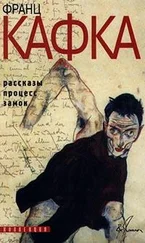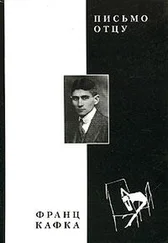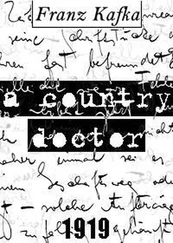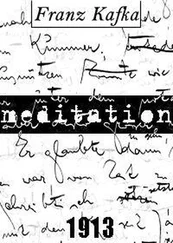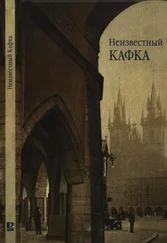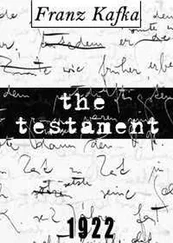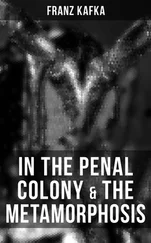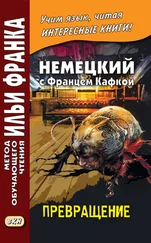Following this train of thought, the Traveler asked, "Will the Commandant be present at the execution?" "That is not certain," said the Officer, embarrassingly affected by the sudden question, and his friendly expression made a grimace. "That's why we need to hurry up. As much as I regret the fact, I'll have to make my explanation even shorter. But tomorrow, once the apparatus is clean again—the fact that it gets so very dirty is its only fault—I could add a detailed explanation. So now, only the most important things. When the man is lying on the bed and it starts quivering, the harrow sinks onto the body. It positions itself automatically in such a way that it touches the body only lightly with the needle tips. Once the machine is set in this position, this steel cable tightens up into a rod. And now the performance begins. Someone who is not an initiate sees no external difference among the punishments. The harrow seems to do its work uniformly. As it quivers, it sticks the tips of its needles into the body, which is also vibrating from the movement of the bed. Now, to enable someone to check on how the sentence is being carried out, the harrow is made of glass. That gave rise to certain technical difficulties with fastening the needles securely, but after several attempts we were successful. We didn't spare any efforts. And now, as the inscription is made on the body, everyone can see through the glass. Don't you want to come closer and see the needles for yourself."
The Traveler stood slowly, moved up, and bent over the harrow. "You see," the Officer said, "two sorts of needles in a multiple arrangement. Each long needle has a short one next to it. The long one inscribes, and the short one squirts water out to wash away the blood and keep the inscription always clear. The bloody water is then channeled here in small grooves and finally flows into these main gutters, and the outlet pipe takes it to the pit." The officer pointed with his finger to the exact path which the bloody water had to take. As he began to demonstrate with both hands at the mouth of the outlet pipe, in order to make his account as clear as possible, the Traveler raised his head and, feeling behind him with his hand, wanted to return to his chair. Then he saw to his horror that the Condemned Man had also, like him, accepted the Officer's invitation to inspect the arrangement of the harrow up close. He had pulled the sleeping Soldier holding the chain a little forward and was also bending over the glass. One could see how with a confused gaze he also was looking for what the two gentlemen had just observed, but how he didn't succeed because he lacked the explanation. He leaned forward this way and that. He kept running his eyes over the glass again and again. The Traveler wanted to push him back, for what he was doing was probably punishable. But the Officer held the Traveler firmly with one hand, and with the other he took a lump of earth from the wall and threw it at the Soldier. The latter opened his eyes with a start, saw what the Condemned Man had dared to do, let his weapon fall, braced his heels in the earth, and pulled the Condemned Man back, so that he immediately collapsed. The Soldier looked down at him, as he writhed around, making his chain clink. "Stand him up," cried the Officer. Then he noticed that the Condemned Man was distracting the Traveler too much. The latter was even leaning out away from the harrow, without paying any attention to it, wanting to find out what was happening to the Condemned Man. "Handle him carefully," the Officer yelled again. He ran around the apparatus, personally grabbed the Condemned Man under the armpits and, with the help of the Soldier, stood the man, whose feet kept slipping, upright.
"Now I know all about it," said the Traveler, as the Officer turned back to him again. "Except the most important thing," said the latter, grabbing the Traveler by the arm and pointing up high. "There in the inscriber is the mechanism which determines the movement of the harrow, and this mechanism is arranged according to the diagram on which the sentence is set down. I still use the diagrams of the previous Commandant. Here they are." He pulled some pages out of the leather folder. "Unfortunately I can't hand them to you. They are the most cherished thing I possess. Sit down, and I'll show you them from this distance. Then you'll be able to see it all well." He showed the first sheet. The Traveler would have been happy to say something appreciative, but all he saw was a labyrinthine series of lines, criss–crossing each other in all sort of ways. These covered the paper so thickly that only with difficulty could one make out the white spaces in between. "Read it," said the Officer. "I can't," said the Traveler. "But it's clear," said the Officer." "It's very elaborate," said the Traveler evasively, "but I can't decipher it."
"Yes," said the Officer, smiling and putting the folder back again, "it's not calligraphy for school children. One has to read it a long time. You too will finally understand it clearly. Of course, it has to be a script that isn't simple. You see, it's not supposed to kill right away, but on average over a period of twelve hours. The turning point is set for the sixth hour. There must also be many, many embellishments surrounding the basic script. The essential script moves around the body only in a narrow belt. The rest of the body is reserved for decoration. Can you now appreciate the work of the harrow and the whole apparatus? Just look at it!" He jumped up the ladder, turned a wheel, and called down, "Watch out—move to the side!" Everything started moving. If the wheel had not squeaked, it would have been marvelous. The officer threatened the wheel with his fist, as if he was surprised by the disturbance it created. Then he spread his arms, apologizing to the traveler, and quickly clambered down, in order to observe the operation of the apparatus from below.
Something was still not working properly, something only he noticed. He clambered up again and reached with both hands into the inside of the inscriber. Then, in order to descend more quickly, instead of using the ladder, he slid down on one of the poles and, to make himself understandable through the noise, strained his voice to the limit as he yelled in the traveler's ear, "Do you understand the process? The harrow is starting to write. When it's finished with the first part of the script on the man's back, the layer of cotton wool rolls and turns the body slowly onto its side to give the harrow a new area. Meanwhile those parts lacerated by the inscription are lying on the cotton wool which, because it has been specially treated, immediately stops the bleeding and prepares the script for a further deepening. Here, as the body continues to rotate, prongs on the edge of the harrow then pull the cotton wool from the wounds, throw it into the pit, and the harrow goes to work again. In this way it keeps making the inscription deeper for twelve hours. For the first six hours the condemned man goes on living almost as before. He suffers nothing but pain. After two hours, the felt is removed, for at that point the man has no more energy for screaming. Here at the head of the bed warm rice pudding is put in this electrically heated bowl. From this the man, if he feels like it, can help himself to what he can lap up with his tongue. No one passes up this opportunity. I don't know of a single one, and I have had a lot of experience. He first loses his pleasure in eating around the sixth hour. I usually kneel down at this point and observe the phenomenon. The man rarely swallows the last bit. He turns it around in his mouth and spits it into the pit. When he does that, I have to lean aside or else he'll get me in the face. But how quiet the man becomes around the sixth hour! The most stupid of them begin to understand. It starts around the eyes and spreads out from there. A look that could tempt one to lie down under the harrow. Nothing else happens. The man simply begins to decipher the inscription. He purses his lips, as if he is listening. You've seen that it's not easy to figure out the inscription with your eyes, but our man deciphers it with his wounds. True, it takes a lot of work. It requires six hours to complete. But then the harrow spits him right out and throws him into the pit, where he splashes down into the bloody water and cotton wool. Then the judgment is over, and we, the soldier and I, quickly bury him."
Читать дальше


